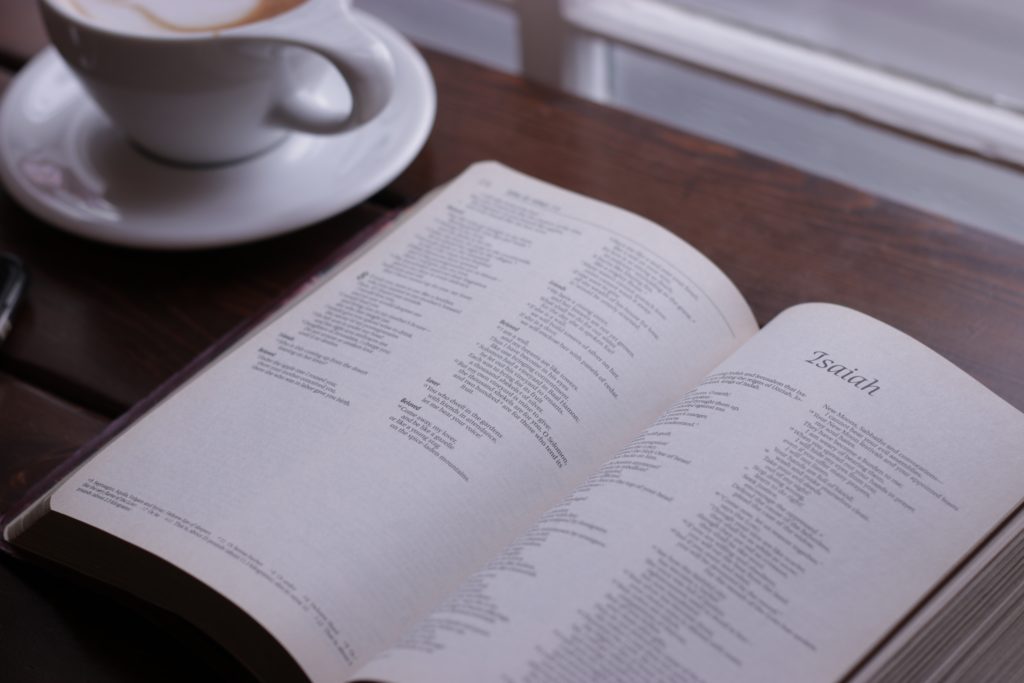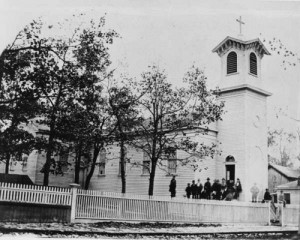
Before we wade all the way into the depth of Isaiah, we need to prepare ourselves. To do that, we’re just going to look at Isaiah 1:1 and see a few things that will help us dive into the book next week. This first verse says, “The vision of Isaiah the son of Amoz, which he saw concerning Judah and Jerusalem in the days of Uzziah, Jotham, Ahaz, and Hezekiah, kings of Judah.”
Isaiah Is a Specific Type of Book
The first thing to understand is that Isaiah is a specific type of book. To explain what the next 66 chapters are going to be about, Isaiah leads off saying it’s a vision. With that, this book is automatically set apart as a book of prophecy.
Why is this important to know? Before you read anything, it’s helpful to know what kind of thing it is so you can know how to understand it and what to do with it. You wouldn’t read a mystery novel the same way you read a biography, or a biography the same way you read a collection of poems. It’s good to ask “What am I reading?” before trying to understand it.
Many people think that a prophet is someone who tells the future. While that’s sometimes true, it’s not always accurate. It’s better to understand a prophet as a messenger – someone delivering a message from God to God’s people. God would often send prophets to explain things to His people when they broke His covenant rules, and this is the function of Isaiah.
Isaiah Is Written to a Specific People
Now, you might be thinking, “Okay, this is God’s message to His people a long, long time ago. How is it relevant to me?” That’s a good point. Yes, Isaiah was written “concerning Judah and Jerusalem in the days of Uzziah, Jotham, Ahaz, and Hezekiah” and not to us today. However, that doesn’t mean it’s irrelevant to us.
We do have to understand some historical context to understand what’s going on in this book. Otherwise it’s like walking into the middle of a movie and trying to understand what’s happening. So here’s a quick sketch of the timeline leading up to the book of Isaiah:
- God created mankind to know, love, honor and be close to Him. But in order to make this relationship real, He gave man the freedom to choose whether or not he would love and honor God or go his own way. Man chose to go his own way, and so brought sin into the world and broke the relationship with God.
- People began to multiply and fill the earth, filling the world also with sin. So God decided to destroy everyone with a worldwide flood, saving only Noah and his family.
- People again multiplied, and again so did sin. But this time, God chose to make a special people group through Abraham, out of which one person would come and bless all people. Part of God’s promise to Abraham was also that he would live in a land called Canaan (the Promised Land).
- Abraham’s grandson Jacob changed his name to Israel. And his family (God’s special people group) ended up in Egypt after Joseph was taken there.
- The Israelites eventually became slaves in Egypt, though. So God picked out Moses to lead them out of slavery into the Promised Land.
- Initially, the nation of Israel in the Promised Land was ruled by judges, but then they chose to have kings. After King Solomon, the kingdom split into two kingdoms: Israel and Judah. And the capital of this split, torn-up kingdom was Jerusalem. This is where Isaiah was.
- At the time when Isaiah was doing his ministry, Judah was on the verge of being conquered by Assyria.
Isaiah Is Relevant to Us
Yes, the book of Isaiah was written to a specific people in a specific historical time. However, it’s not irrelevant to us for two reasons:
- The “younger sibling advantage.” Younger siblings learn a lot from their older siblings’ mistakes, as well as from their own. We are sort of like Judah’s little brother here. Reading Isaiah is like listening at the door to a father-son chat that God had with Judah back then. We’re going to learn a lot about what God wants for His people.
- Isaiah is quoted a lot in the New Testament. New Testament writers quoted Isaiah a lot, and clearly felt it was relevant to the events of Jesus Christ. In fact, we may not be able to fully understand Jesus without knowing what is written in Isaiah.
So, through reading Isaiah, we’ll learn a lot about God and what He wants for His people. We’ll also come to understand Jesus Christ and what it means to be a Christian more fully.
Isaiah Is Confrontational
One additional thing we should know to prepare ourselves is that Isaiah is a confrontational book. So as we receive it, we will be challenged to face any ongoing, unrepentant sin in our lives. We’ll be challenged to break down patterns of sin that we may never even think about. This is really good, but it can be really uncomfortable.
Let’s ask God to soften our hearts as we approach Isaiah. Let’s expect God to reveal to us ways in which He wants us to change and grow spiritually.
Discussion Starters
- What does it mean that Isaiah is a book of prophecy? Why is this important?
- What is the historical context of Isaiah?
- How is this book relevant to us?





